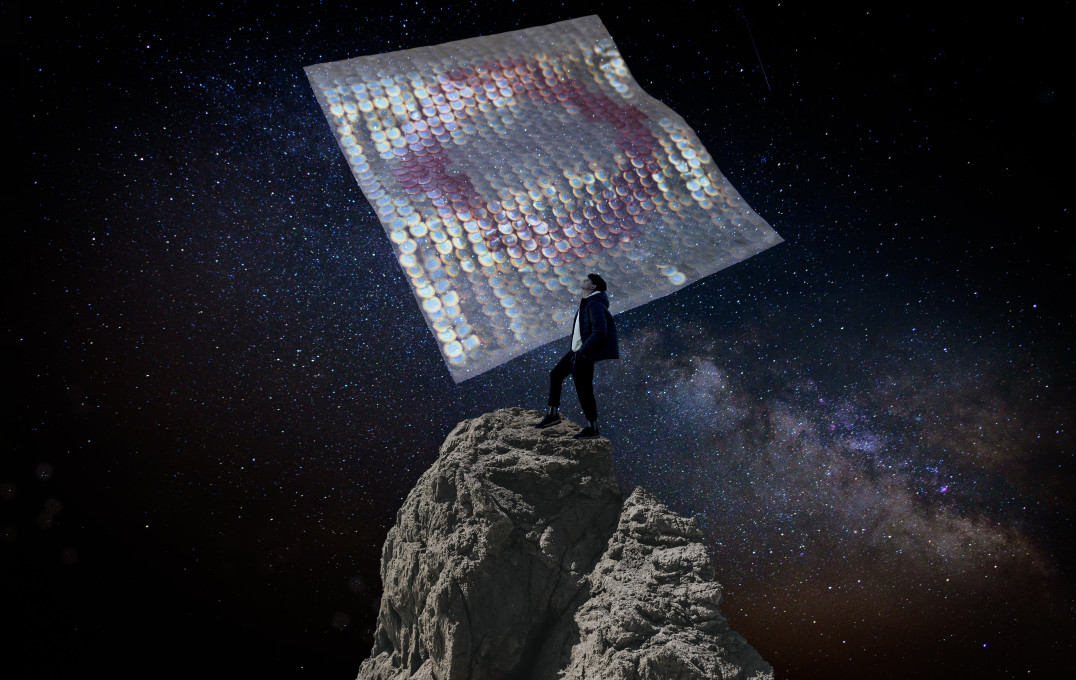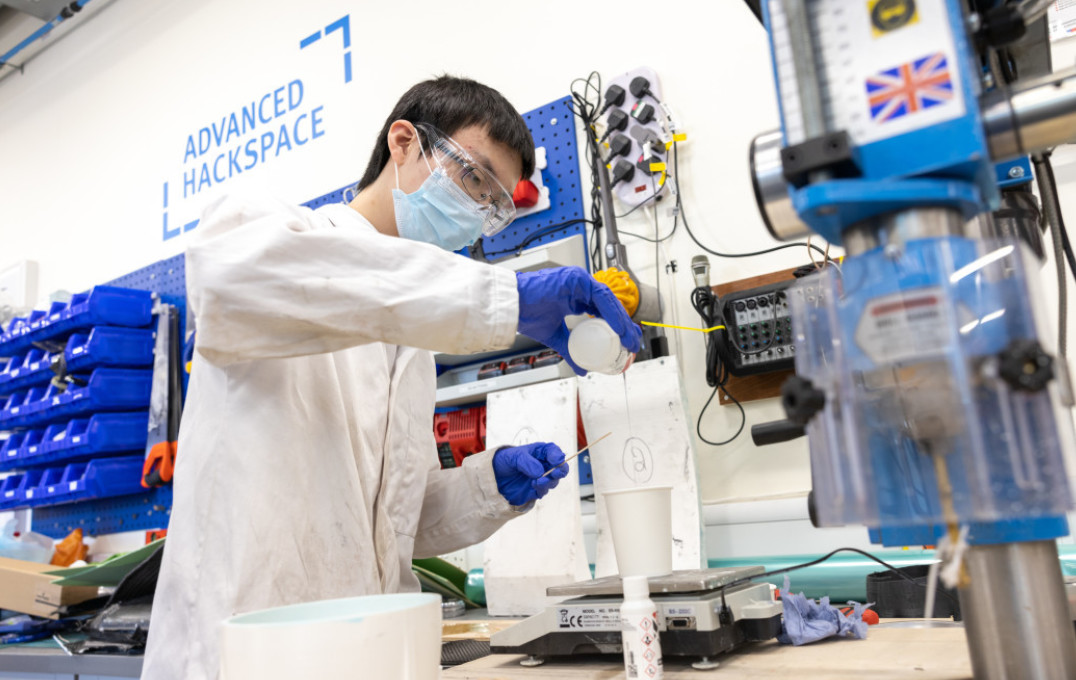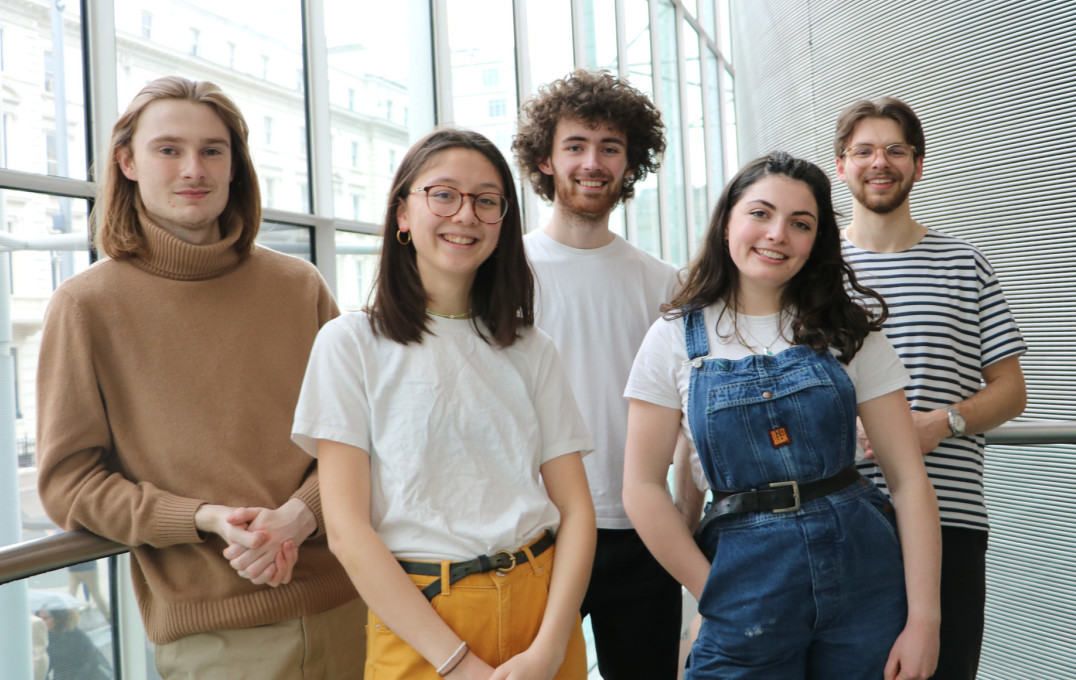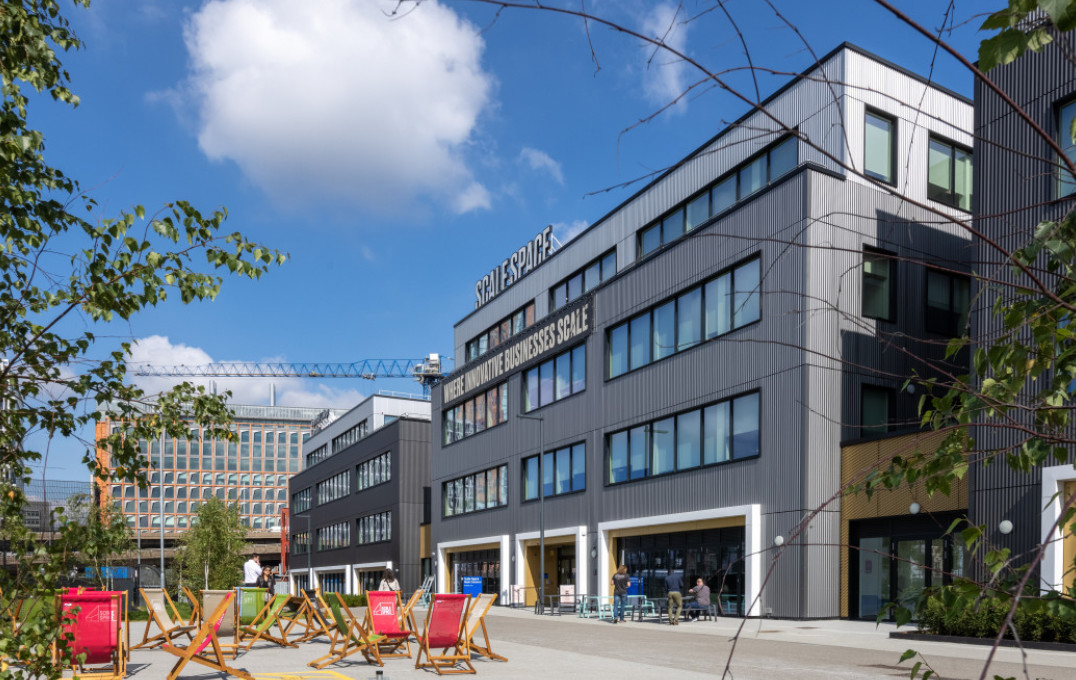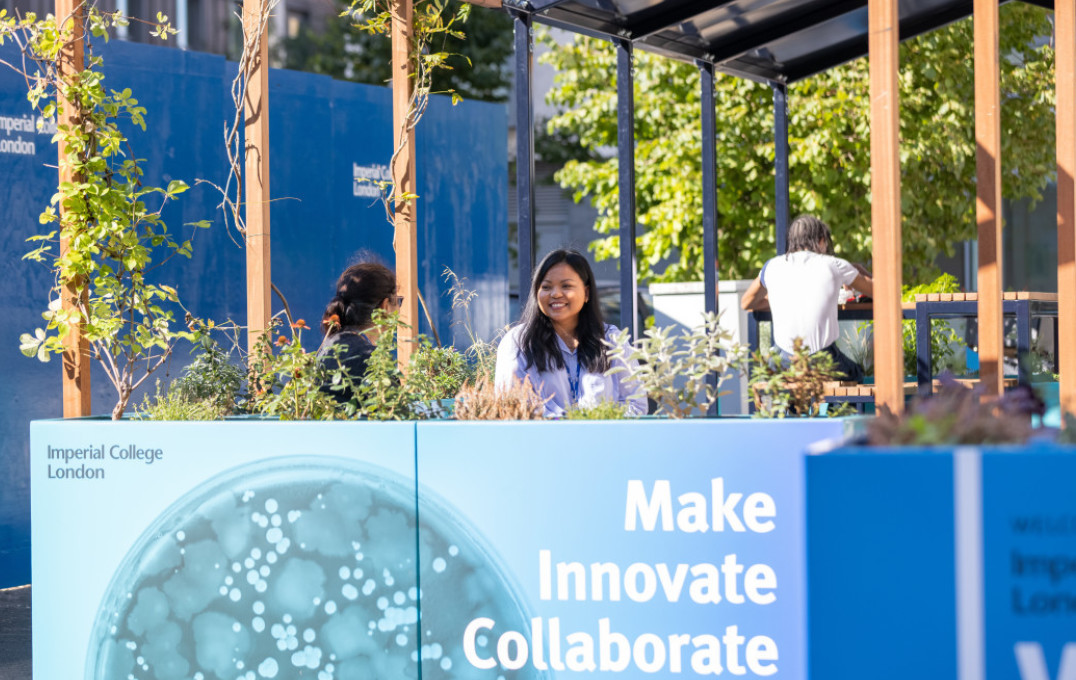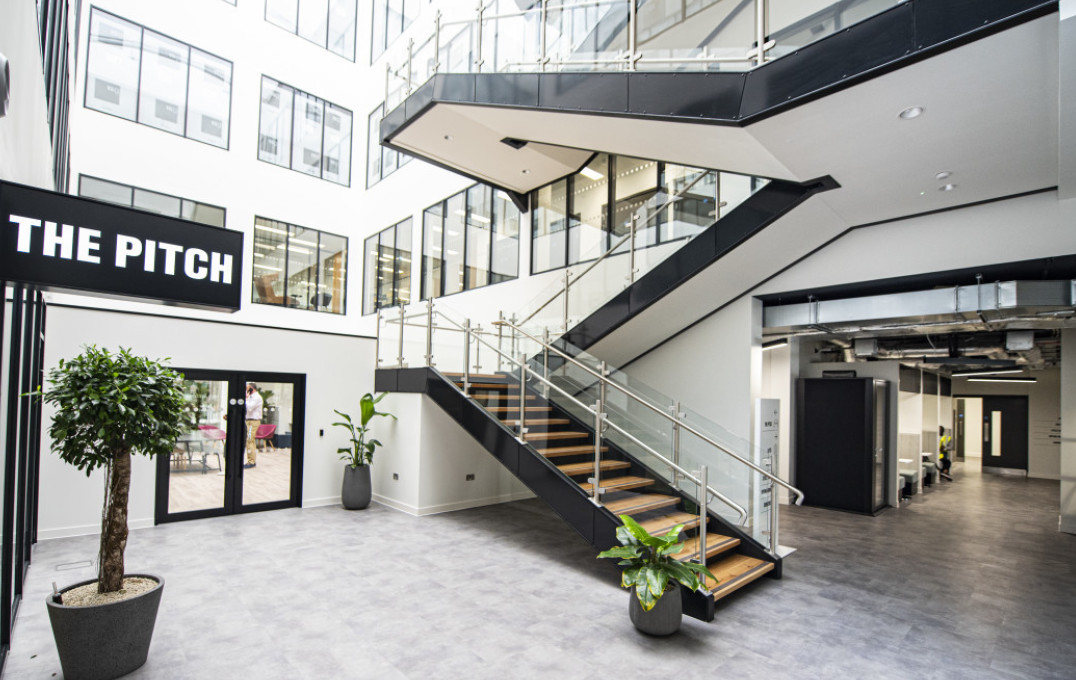In conversation on innovation: Professor Mary Ryan and Alyssa Gilbert
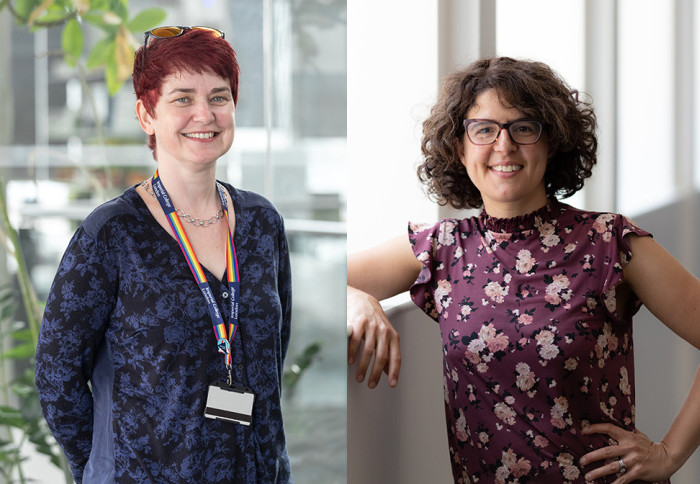
Professor Mary Ryan (l). Alyssa Gilbert (r)
New Undaunted Director, Alyssa Gilbert, unpacks innovation with Imperial Vice-Provost (Research and Enterprise), Professor Mary Ryan.
Imperial’s Centre for Climate Change Innovation (CCCI) is evolving. As well as a new name – Undaunted – and branding, it’s welcoming a new Director, Alyssa Gilbert.
Undaunted focuses on climate innovation within academic science, industry, and business, and also across broader critical contexts, such as policy and societal engagement. It is building a global community, based in central London, of people with exciting ideas that tackle the climate crisis in sustainable, viable, equitable and scalable ways.
Alyssa sat down for a chat with Professor Mary Ryan, Imperial’s Vice-Provost (Research and Enterprise), to share ideas about innovation and to explore why a project like Undaunted is a compelling part of Imperial’s ecosystem.
Innovation can sound like a buzzword: what does it mean to you?
Mary: There are two components: the first is new ideas – you have to be in a space where you are free to imagine things differently and question the way things are. Just having the idea is not innovation, though. Innovation is implementing it.
Just having the idea is not innovation... Innovation is implementing it. Professor Mary Ryan Vice-Provost (Research and Enterprise)
For ideas to have impact it’s key to understand what the barriers to translation are. That’s why Undaunted is so important, focusing on tackling hurdles – particularly across policy and engagement – that prevent academic science from being translated effectively. As he steps down as Director, I’d like to thank Professor Richard Templer for envisioning and instigating the Undaunted project. His enthusiasm and dedication over the past ten years has invaluably contributed to innovation at Imperial. It’s also brilliant is to welcome you, Alyssa, as the new Director! It’ll be really interesting to see how the team’s activities develop with the influence of your expertise in the world of climate and environment policy.
Alyssa: Thanks Mary – Richard’s dedication has been phenomenal. I’m taking the role on at a particularly interesting point, as we embrace a new identity that emphasises how, in the face of climate change, we are Undaunted. Richard has been the driving force and I’m really pleased that he’ll continue to be a key part of the team as we become Undaunted.
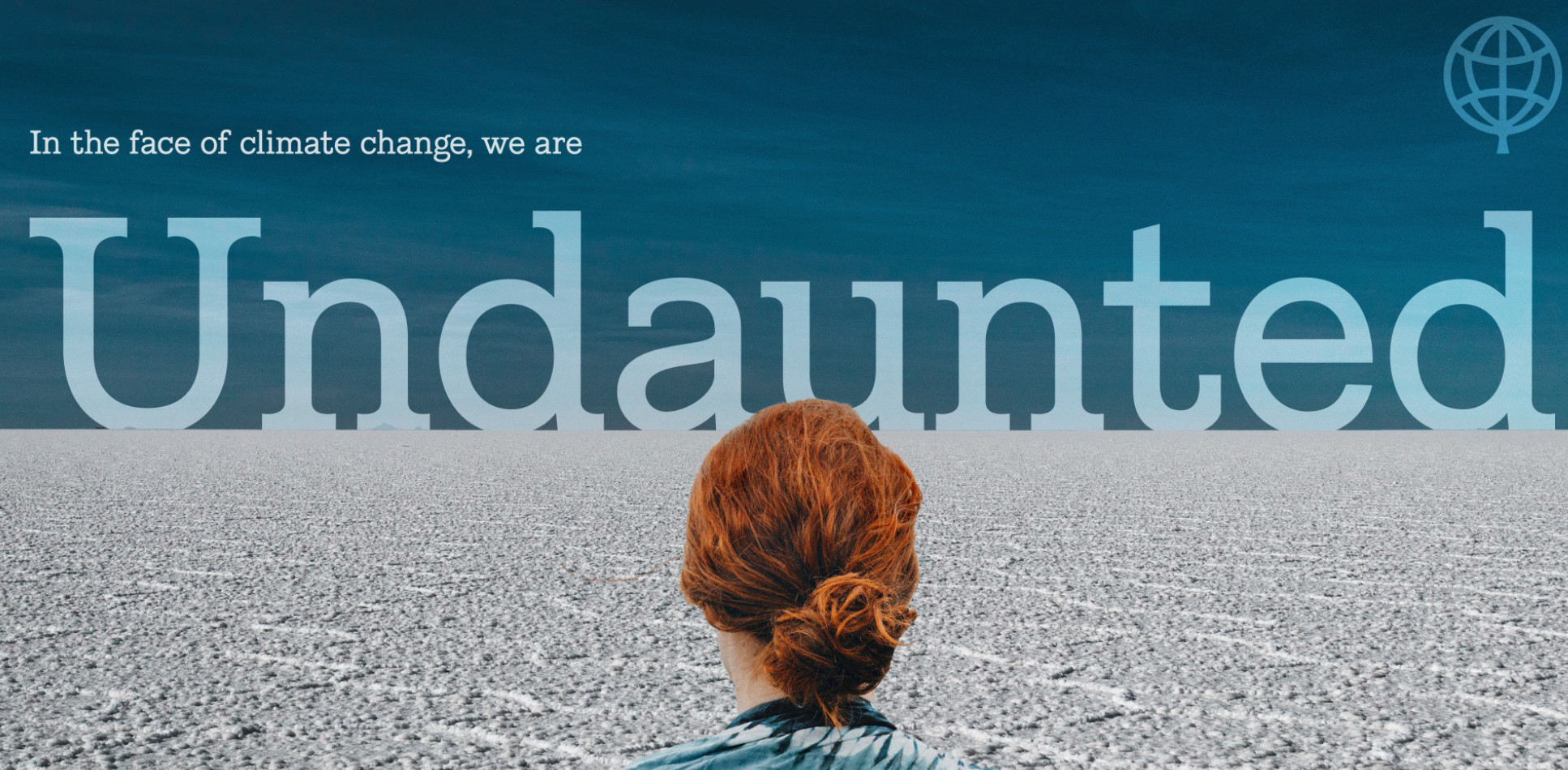
Why is it such a hot topic?
Alyssa: Technology has been changing our ways of living – completely changing our societies – for as long as humans have been around. If the tech worked, we used it.
Innovation [isn't] the only way to solve problems…There’s an interesting question about when to drive towards innovation, and when to focus on the things we already know how to do that just need more or better implementation. Alyssa Gilbert Director of Undaunted & Director of Innovation at the Grantham Institute
Now we're in an era of being purpose driven. Problems are critical. As well as encouraging technological innovation in broad terms, we're also adding some focus. There are specific problems that we need to solve for our next chapter on this planet. Mission-driven innovation requires different kinds of infrastructure to develop. At Undaunted we’re asking: what is it that we can do to make innovation purposeful without compromising what is already working well? What can we do to enhance the pace at which solutions are able to scale-up and deliver impact successfully?
One of the reasons why innovation comes in and out of vogue is because it isn't the only way to support and solve problems. Sometimes it can be easier for governments and individuals to look for the new and exciting solutions rather than using what is already readily available. There’s an interesting question about when to drive towards innovation, and when to focus on the things we already know how to do that just need more or better implementation. For climate change we need to do both!
Mary: Right – there’s a bit of a narrative that innovation will solve everything, and nobody has to change their life. That we can continue to consume at the level we are now because we’ll innovate our way out of climate catastrophe. It’s an attractive idea, especially when it comes to short-term political cycles. Rather, we need to consider the long-term, embedded systems around us, including behaviour change and policy incentives. Innovation isn't the only answer.
Alyssa: Doing things differently doesn't mean having a more difficult life! I love science fiction. It can be very dystopian, but some sci-fi envisions a really positive and exciting future – that's what we're aiming towards.
Mary: There's an undercurrent of hope in all innovators! In trying to create a utopia, things can very rapidly turn dystopian, which is why the question is so much bigger than just the tech.
Undaunted's new branding includes striking collages, comprising images from our startups embedded into landscapes and cityscapes. People are woven into these compositions: the climate is everyone's business.
How has innovation at Imperial evolved?
Mary: Enterprise teams and activities have evolved a huge amount over the past ten years, enabling us to translate our research into tech and policy that has real societal impact, and also changing the conversation around what we can do with our research. This route is not just available for our academic staff, but encouraged and supported.
About a quarter of all Imperial students tap into the Enterprise Lab, which is remarkable. The Lab’s support is free for our students to help them create and manage their ideas - and it really does create impact. Multus co-founders are Imperial alumni, who took their idea to our Advanced Hackspace and participated in various Imperial enterprise initiatives; the team's startup recently raised £7.9 million from investors.
We’ve also invested in incubator space at White City and built a huge network of external mentors who support specialist thematic programmes like Climate KIC, Undaunted’s The Greenhouse and the MedTech SuperConnector. A great example of how the ecosystem works is Notpla, recent winner of the Earthshot prize, who received support from Enterprise Lab, the CCCI and the White City Incubator. Plus, our new Institute for Deep Tech Entrepreneurship considers how to build a more resilient ecosystem to support deep tech, which often has higher risks when it comes to investment. There's a big challenge in sustaining deep tech ventures long enough to reach viability.
What does the next chapter look like for Undaunted?
Alyssa: Undaunted is part of Imperial – 30% of our startups come from this community. Developing this strong foundation is important, offering us opportunities to help our startups with things like lab space and facilities. However, it’s really important to us to continue welcoming the two thirds of our startups that are from elsewhere! We want to broaden the funnel of input into our entrepreneurship support, continue building a base that attracts the best from London and around the UK, and also strengthening our global connections.
Businesses we've supported over the past ten years have achieved international reach, raised millions of pounds worth of capital, created thousands of jobs and reduced tons of greenhouse gas emissions – we want to see more of that. Alyssa Gilbert Director of Undaunted & Director of Innovation at the Grantham Institute
Undaunted is partnered with, and based at, The Royal Institution (Ri), which was founded during the Industrial Revolution to share new discoveries and ideas with the general public. When we’re finding solutions, we want to be doing so in a way that's fully engaged with the public and encouraging them to find their roles in this story as well.
Some of the businesses that we've supported over the past ten years have achieved international reach, raised millions of pounds worth of capital, created thousands of jobs and reduced tons of greenhouse gas emissions – we want to see more of that.
It seems to be easier for people to think innovatively about mitigation – reducing greenhouse gas emissions, rather than to come up with ideas for adapting to the changes in climate that are already happening. Global solutions for adaptation are more difficult because the impacts of climate change are often very context dependent. Also, the solutions might be more public sector oriented – social enterprises or public programmes – rather than commercial. But tackling complex issues is the point of being Undaunted in the face of climate change! Going forwards we need to promote and support commercially viable ideas around adaptation, as well as mitigation.
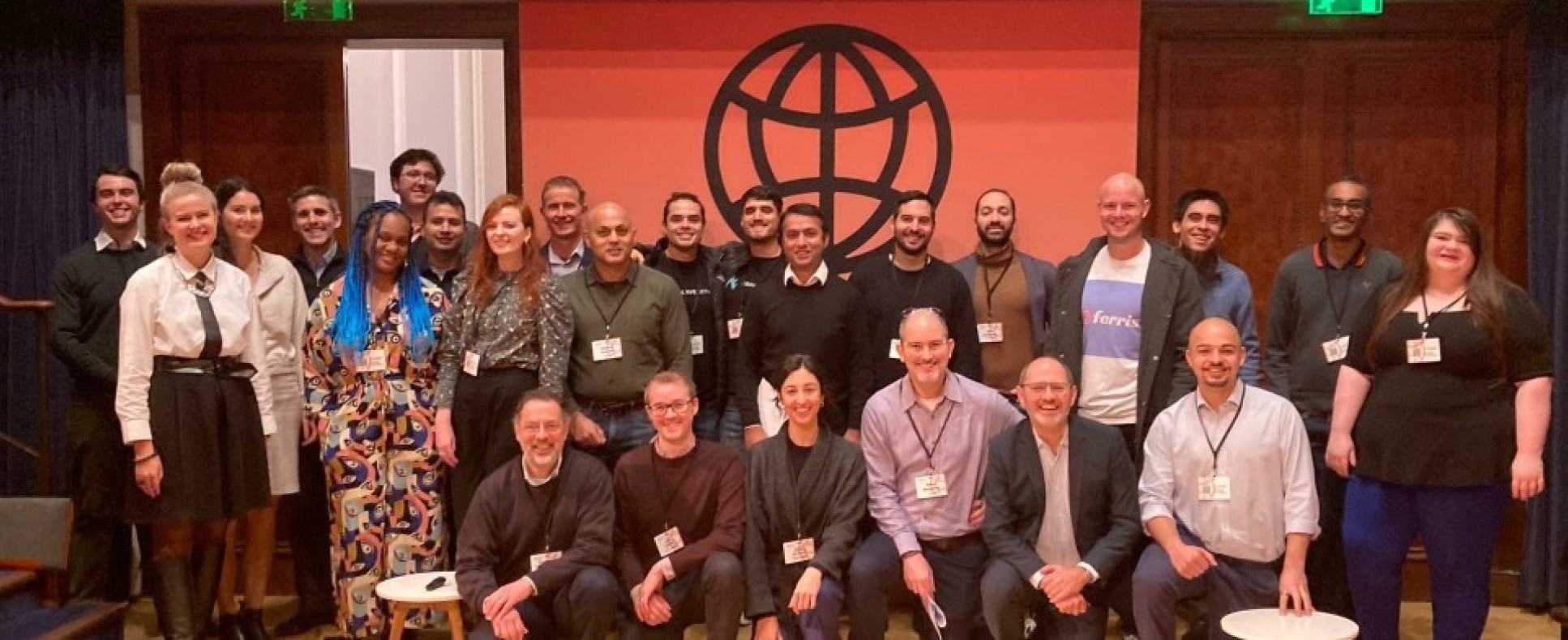
How does Undaunted help startups to scale up once they finish The Greenhouse?
Alyssa: The Greenhouse is unique in that it doesn't take equity – we’re interested in companies’ growth for impact rather than purely for the money it generates. The community that we’re building is focused on this priority and requires us to think about how we're creating ecosystems whereby government and policymakers better understand what these young businesses need, to make London and the UK an excellent place to do climate innovation. This includes building connections with the international community. Climate change is global challenge – we want create jobs and value for the UK, but we also want these solutions to have impact around the world.
What role do academic scientists – both pure and applied – play in Undaunted?
A scientist [might have] a discovery that could have a positive societal impact, but they don't want to be the person that drives it [commercially]. You don't have to be all parts of the startup to be an important aspect of it. Professor Mary Ryan Vice-Provost (Research and Enterprise)
Alyssa: Problem-solving drives most scientists and engineers to pursue academic careers, so we need to help people unlock their potential to innovate. Some scientists want to stay in their academic roles, focusing on the teaching and research that they love, but they might also have ideas that could be commercialised. So, their role in the enterprise journey might be different from the scientists who have an idea that they really want to drive forward commercially themselves. Both approaches are possible and can have great impact.
Mary: That’s one of the biggest barriers: an academic scientist knows they've got a discovery that could have a positive societal impact, but they don't necessarily want to be the person that drives it – or have the right skills to do so. If they don't know how to find the network of people who can support them, they may decide they are not able to take it further. It’s important that we more clearly communicate that an individual academic doesn’t have to be all parts of the startup!
What’s the ethical dimension?
Mary: I think scientists are in some way responsible for what happens with their discoveries, even if they’re not involved in the commercialisation – we should all be cognisant of the implications of our work, though I realise this is a debatable position. In my opinion, even if the research is very fundamental, we should consider the potential scenarios in which it could be used. Not everyone sees it that way, and we should be open about discussing these questions. In 2023 we’re planning a series of conversations around ethics in science, and this is a key question: who's responsible for where your research goes? It's an important conversation for us to have. Watch this space!
Are you an innovator with a solution to tackle climate change?
Applications for the fifth cohort of The Greenhouse are now open, with successful applicants starting in Spring 2023. Sign up to our newsletter, and follow us on LinkedIn and Twitter to stay up-to-date on news, events and opportunities.
Undaunted is a partnership between Imperial's Grantham Institute and The Royal Institution.

The Greenhouse is currently part of the Centre for Climate Innovation (CCCI) project which is co-funded by the 2014 to 2020 ERDF (European Regional Development Fund) programme. The CCCI is now part of Undaunted.

Undaunted is part-funded by HSBC UK

Article text (excluding photos or graphics) © Imperial College London.
Photos and graphics subject to third party copyright used with permission or © Imperial College London.
Reporter
Claudia Cannon
The Grantham Institute for Climate Change

